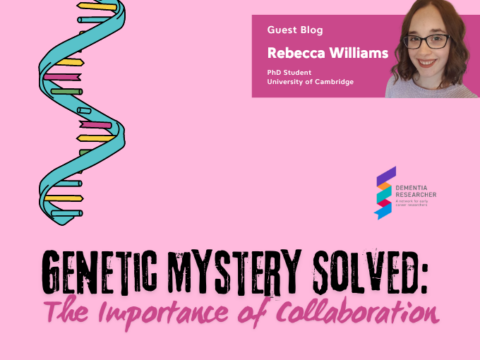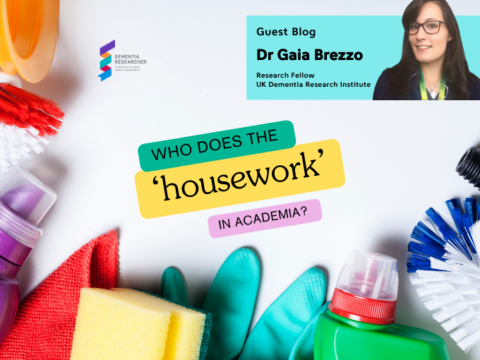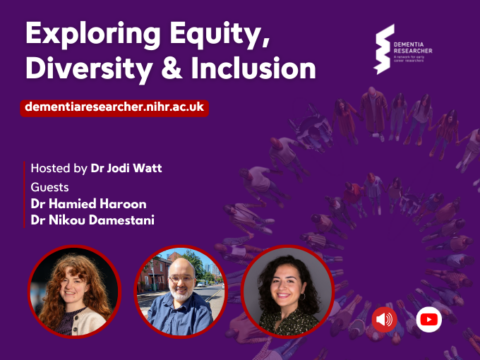In my family, it was always tradition to go and see my gran on Boxing Day. It was my grandad’s birthday, and a tradition we continued after he passed away. It was one of my favourite parts of Christmas, where we would go to her creepy giant house in a fairly northern part of Scotland, which was so full of both character and random tat she’d accumulated over the years that it seemed to sag at its very foundations. I sat on some itchy sofas surrounded by her collection of porcelain dolls whose eyes seemed to follow me as I ate every bit of her mediocre Christmas food, burned to oblivion because “och you know me, that’s just the way I like it.” I’d go and raid her wardrobe, see which of her 150+ kilts she’d let me hack to bits to make some costume or other (the answer, quite rightly, was none), and then sit down to watch some TV or argue with my brother.
Christmas traditions and habits are weird things, and so person- or family-specific. Sometimes I tell people about my ones with my gran and they’ll say “you sound like you’re in a Stephen King novel”, “where is Kathy Bates?”, “even one porcelain doll is too many” (I can’t help but agree with that last one…) but as creepy or unappealing as that may sound to you, those days at my gran’s really were one of my favourite parts of the holiday season.
When my gran was diagnosed with dementia and ended up in a care home, these traditions as we knew them were gone. She was changing, the context was changing, and all of those weird aspects of my Boxing Day weren’t the same anymore. We had a whole new holiday landscape to navigate, and little to no guidance on how to do so. This lack of direction was a bit of a challenge, but over time we managed to find ways to celebrate that worked for us. It’s very possible to modify our holiday traditions to include our relatives or friends with dementia, and perhaps make some new ones along the way. Hopefully, some of the following suggestions can help those of you reading.
- Keep it familiar and simple. Cognitive change is disorientating, so it can be helpful for many people that their environment remains familiar to them. Decorations are, of course, a Christmas mainstay for many, but simplifying these and prioritising those with history and meaning can be helpful in both grounding the person and preventing sensory overload or a feeling of general overwhelm due to the festivities. Familiar music can also be hugely evocative and impactful on the mood of the celebrations.
- Ensure there is a comfortable space away from the festivities. This goes hand-in-hand with my previous point, a space where a person can escape the intensity of the day can be very valuable for the individual with dementia and their family alike.
- Be flexible. If your family is anything like mine, Christmas is somewhat regimented in timing and activities, because of the need to balance seeing everyone. However, rigidity and dementia did not go hand-in-hand, at least in my experience. Those holidays where we were able to adapt celebrations for earlier in the day and had meals that were more familiar to my gran, were far more successful for her.
- Involve the person with dementia, if possible. Sounds simple, but can feel overwhelming, particularly as you navigate that first Christmas after a diagnosis. Something that can work well is to engage people with dementia in some of the simpler tasks of the season, such as decorating or wrapping. It can also be good to make a point of doing some positive memory-focused activities, such as sharing tales from the past or looking through old albums full of photos.
- Trying to keep a positive attitude. We all know how emotionally, psychologically and physically draining living with (or supporting someone with) dementia can be. I don’t want to dispute that for a second. But from 10+ years of navigating holidays with my gran with dementia, the best and most memorable ones with her are some of the ones where she had dementia. One of my favourites was just after she was diagnosed, where she managed to have multiple Christmas dinners during the day. My parents thought she just forgot (my mum still does, hi if you’re reading this), and she played into it, but the massive wink she gave me across the table told me she knew exactly what she was doing. There’s life after a diagnosis of dementia, but it can be easy (and understandable) to get stuck in the weeds of all the bad that comes with it.
- Be mindful of the guests who will be there. Guests may not have been around any of you for a while, so it’s important to update as necessary in advance, and let them know how they can support you all whilst they’re there.
- Know that each holiday season might necessitate a different approach. Dementia is progressive, and what works for the first big holiday period after diagnosis might not work a few years down the line. That’s ok. As you learn what dementia looks like for them, you will also learn how to balance their needs and your own, and professionals can also help with that.
- Share your worries, with friends or professionals. If you’ve met one person with dementia, you’ve met one person with dementia. This is mainly about my experience with my gran, but people who know your relative, or are a regular part of their professional care, are far better placed to provide person-specific advice than I am.
Ultimately, it’s important to balance the needs of the person with dementia and your own emotional wellbeing. My gran died quite a few years ago now, but I still treasure these memories with her, irrespective of whether they were in her doll-laden house or in her latter years at a care home. Dementia does not mean that a person should be excluded from festivities, but it can require a different approach than you’re used to.
Looking for further information? Visit the Alzheimer’s Society website for helpful advise on How to support a person with dementia at Christmas. https://www.alzheimers.org.uk/blog/how-support-dementia-christmas

Jodi Watt
Author
Dr Jodi Watt is a Postdoctoral Researcher at University of Glasgow. Jodi’s academic interests are in both healthy ageing and neurodegenerative diseases of older age, and they are currently working on drug repurposing for dementia. Previously they worked on understanding structural, metabolic and physiological brain changes with age, as measured using magnetic resonance imaging. As a queer and neurodiverse person, Jodi is also incredibly interested in improving diversity and inclusion practices both within and outside of the academic context.

 Print This Post
Print This Post





